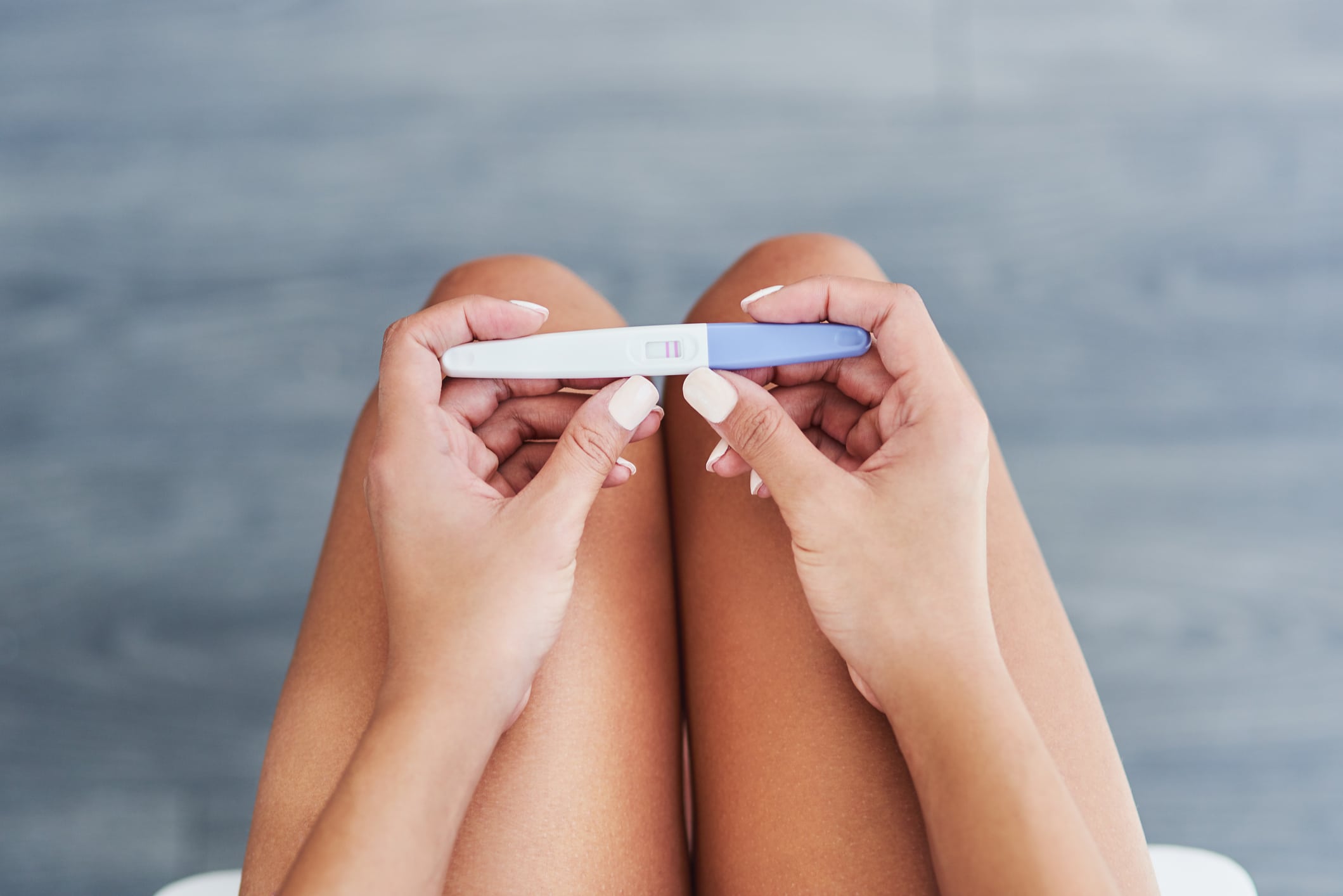Is it possible to be just a little bit pregnant? Well, sort of. A chemical (or biochemical) pregnancy is a pregnancy that comes to an end very early on. This early miscarriage is often missed. Let’s explore what causes a chemical pregnancy, how common it is, what signs to look out for, whether you need treatment for it, and more on this topic.
A chemical or biochemical pregnancy is a very early miscarriage that happens before six weeks, often with the assistance of reproductive technology.1 In this case, conception has occurred. The fertilized egg may even get the chance to implant into the myometrium of the uterus. But development stops shortly thereafter, before the development of an embryo or gestational sac.2
Differences Between a Chemical Pregnancy and a Clinical Pregnancy
A chemical pregnancy is in such an early stage of development that the diagnosis of pregnancy is only made due to circulating levels of human chorionic gonadotropin (hCG). A positive pregnancy test indicates that there’s enough circulating hCG in your urine to suspect pregnancy.2
A pregnancy becomes clinically positive when a gestational sac or embryo is visible on ultrasound. A clinical pregnancy continues in development to result in a miscarriage, ectopic pregnancy, or delivery.2
Most early pregnancy losses usually result from chromosomal abnormalities. Other reasons include:2
- Uterine lining that’s too thin
- Sperm DNA damage
- Frozen embryo damage
There are several other risk factors that can contribute to early pregnancy loss, including:1,5
- Advanced maternal age greater than 35
- Prior history of pregnancy loss
- First-trimester vaginal bleeding
- Autoimmune conditions
- Thyroid disease
- Obesity
- Diabetes
- Infections
- Uterine abnormalities
- Chronic stress
- Environmental contaminants
- IVF
Currently, biochemical pregnancies are becoming recognized because of the greater availability of highly sensitive home pregnancy tests.2 Some tests may detect urine hCG hormone three to four days before a missed period.
Up to 25% of pregnancies will fail before a pregnant person has missed menstruation or experiences any symptoms.2 It’s entirely possible that you may not recognize a chemical pregnancy, especially if it occurs before a missed period.
Artificial reproductive technology (ART), such as in vitro fertilization (IVF), is helping greater numbers of hopeful parents achieve pregnancy. Multiple blood tests are drawn throughout in vitro fertilization to monitor hormone levels throughout the cycle. Chemical pregnancies following ART are recognized and can occur in up to 20% of women after the transfer of frozen embryos.2
Perhaps the most tell-tale sign of an early miscarriage is a positive pregnancy test but bleeding like your period or bleeding that starts a few days later. Any resulting bleeding following a very early miscarriage can be easily mistaken as a late or heavy period.1 Cramping may also occur.1
At this stage, it may be difficult to discern a miscarriage vs. a period because the symptoms can be the same. You may also report to your obstetric provider for confirmation of pregnancy ultrasound following a positive test to find that there’s no growing embryo.
A chemical pregnancy is considered an early pregnancy loss, but no treatment is necessary. The loss occurs so early in pregnancy development.2 Follow-up may be necessary to ensure that circulating blood levels of hCG are decreasing to distinguish it from an ectopic pregnancy.2 An ectopic pregnancy occurs outside of the uterus and is considered an emergency.3
A chemical pregnancy, unfortunately, isn’t preventable. You and your partner may naturally feel disappointment, guilt, and grief. However, chemical pregnancies are no one’s fault. Nor do they indicate infertility! In fact, they’re a solid indicator that you may achieve a healthy pregnancy in the future!2
Pregnancy loss can be devastating, especially if the chemical pregnancy occurs following fertility treatment. You may be wondering how long you should wait after a miscarriage before trying to become pregnant again. Some obstetric providers may advise waiting up to three months, but there’s limited research to support this recommendation.4
Perhaps the most important question to ask yourself is: are you (and your partner) ready to try and conceive after a loss? Being able to emotionally heal after a loss is dependent on many factors. It’s an important first step after a miscarriage of any gestation. Some couples may be ready right away to try to conceive, while others may need some time. Seek support from your partner, family, friends, an obstetric provider, and a mental health professional, if needed, to support you (and your partner) through the grieving process.4
Early pregnancy losses can be incredibly difficult. You’re not alone. Give yourself grace. Surround yourself with support. Take advantage of pregnancy loss groups and services. Allow yourself (and your partner) as much time as you need.


